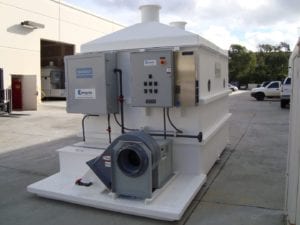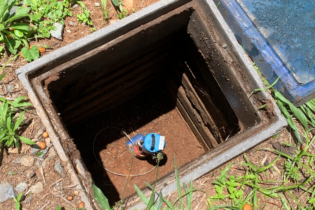As the world’s cities grow, the need for odour control at wastewater works and other waste handling municipal facilities has skyrocketed.
What products and services does QFS offer to assist its public and private sector clients manage odours from municipal wastewater, effluent and leachate? HS: QFS saw the need for odour control at South Africa’s wastewater treatment plants and, so, began a process that eventually saw the company signing an exclusive South African distributor agreement with a highly regarded international company based in Poway, California. Through our partnership with Integrity Municipal Systems (IMS), we are able to provide the most effective odour control available. IMS is a specialty engineering company devoted to the design and supply of innovative, preassembled process solutions for the water and wastewater industry.IMS’s compact, multistage odour control systems combine the low cost of biological oxidation with the high efficiency of activated carbon adsorption. Pre-engineered designs speed up delivery, while improving reliability and reducing cost. Every system is backed with an enhanced spare parts delivery and response system that keeps plants up and running. With over 20 years of experience, IMS has achieved a reputation for producing unique, practical and cost-effective solutions.
What type of environments/feedwaters are your offerings ideally suited to and why? HS: Odour control has moved from an afterthought to a primary design consideration for most collection and treatment facilities. As development encroaches on our facilities and our new neighbours become less tolerant of nuisance odours, wastewater professionals have found the need to address odour as a primary concern. IMS provides a comprehensive review of the technologies available for the control of odours in wastewater treatment facilities. Vapour phase technologies available through our partnership with IMS include: biofiltration – a biological technology with low operating costs; wet air scrubbing – a reliable technology for chemical treatment; and adsorption – a well-established technology using dry media.







